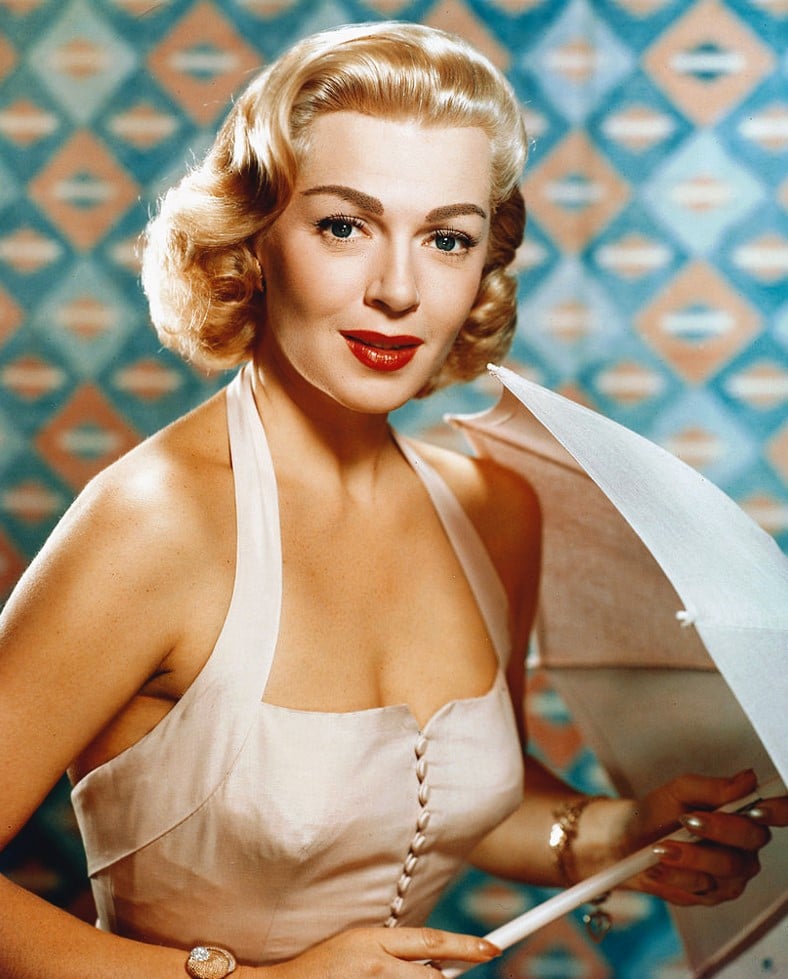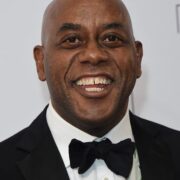What was Lana Turner’s Net Worth?
Lana Turner was an American actress who had a net worth of $5 million at the time of her death. Lana Turner was one of the biggest stars of Golden Age Hollywood cinema. Following her film debut in 1937’s “They Won’t Forget,” she went on to appear in such notable titles as “Johnny Eager,” “Dr. Jekyll and Mr. Hyde,” “The Postman Always Rings Twice,” “The Bad and the Beautiful,” “Peyton Place,” and “Imitation of Life.” Later on in her career, Turner had a memorable recurring role on the television soap opera “Falcon Crest.”
Early Life
Lana Turner was born as Julia Jean Turner on February 8, 1921 in Wallace, Idaho as the only child of working-class parents John and Mildred. She was of Dutch, Scottish, English, and Irish descent. When Turner was six, she moved with her family to San Francisco, California; shortly after this, her parents separated. In 1930, her father was robbed and murdered after he won some cash at a craps game. Subsequently, Turner lived for a while in Modesto with an abusive family while her impoverished mother worked 80 hours a week as a beautician.
Career Beginnings
With her mother, Turner moved to Los Angeles in 1936. There, she attended Hollywood High School. One day, while skipping class, Turner purchased a Coca-Cola at the Top Hat Malt Shop and was spotted by publisher William R. Wilkerson of the Hollywood Reporter. Allured by her beauty, Wilkerson asked her if she wanted to appear in films. After receiving her mother’s permission to take up his invitation, Turner was referred to actor and talent agent Zeppo Marx, who subsequently referred Turner to director Mervyn LeRoy. Ultimately, LeRoy signed Turner to Warner Bros., making her his protege.
Film Career, Part 1
In 1937, Turner made her feature film debut in LeRoy’s crime drama “They Won’t Forget.” The same year, she appeared in “Topper” and “The Great Garrick.” Soon after this, Turner moved with LeRoy from Warner Bros. to MGM, where LeRoy had been hired. She had her first starring role for MGM in the 1938 box-office hit “Love Finds Andy Hardy.” Turner went on to appear in such films for the studio as “The Chaser”; “Rich Man, Poor Girl”; “Dramatic School”; “Calling Dr. Kildare”; “These Glamour Girls”; and “Dancing Co-Ed,” which was a significant commercial success. Next, in 1940, she starred in “We Who Are Young” and “Two Girls on Broadway,” the latter of which was her first musical. Turner subsequently starred in another musical, “Ziegfeld Girl,” in 1941; a huge hit, the film was critical in boosting Turner’s profitability. Following this, she appeared in such films as “Dr. Jekyll and Mr. Hyde,” “Honky Tonk,” “Johnny Eager,” “Somewhere I’ll Find You,” “Slightly Dangerous,” “Marriage is a Private Affair,” and “Week-End at the Waldorf.”
Following World War II, Turner had one of her most famous roles in the film noir “The Postman Always Rings Twice,” based on the eponymous James M. Cain novel. Playing femme fatale Cora Smith, Turner earned rave reviews and was elevated to the ranks of Hollywood’s top dramatic actresses. Subsequently, she starred in the historical disaster drama “Green Dolphin Street”; the romantic dramas “Cass Timberlane” and “Homecoming”; the adventure film “The Three Musketeers”; the melodrama “A Life of Her Own”; and the romantic musical “Mr. Imperium.” Turner starred in another musical after that: 1952’s “The Merry Widow.” That same year, she received strong reviews for her role in Vincente Minnelli’s hit melodrama “The Bad and the Beautiful.” Her next role was in Mervyn LeRoy’s romantic musical comedy “Latin Lovers.”
Keystone/Getty Images
Film Career, Part 2
In 1953, Turner traveled to Europe to make a pair of films under a tax credit for internationally-shot American productions. The films were “Flame and the Flesh” and “Betrayed.” Turner next starred in the biblical epic “The Prodigal” and the World War II drama “The Sea Chase.” In 1955, she was loaned to 20th Century Fox to star in “The Rains of Ranchipur,” a remake of 1939’s “The Rains Came.” Returning to MGM, Turner starred as the titular character in the 1956 historical drama “Diane.” The following year, she had one of her greatest critical successes with the drama “Peyton Place,” earning her first and only Academy Award nomination for Best Actress. After her roles in “The Lady Takes a Flyer” and “Another Time, Another Place,” Turner had her single biggest commercial success with Douglas Sirk’s 1959 melodrama “Imitation of Life,” which grossed over $50 million.
Turner began the 60s with roles in “Portrait in Black,” “By Love Possessed,” and “Bachelor in Paradise,” the latter of which was her final MGM film. She was subsequently in “Who’s Got the Action?” and “Love Has Many Faces.” In 1966, Turner had her last major starring role in the courtroom drama “Madame X.” She began working in film less frequently following this; her next appearance was in the 1969 psychological thriller “The Big Cube.” In the 70s, Turner was in “Persecution” and “Bittersweet Love.” Her final film acting role was in the 1980 horror comedy “Witches’ Brew.”
Television and Stage
On the small screen, Turner had a notable role on the primetime soap opera “Harold Robbins’ The Survivors” from 1969 to 1970. Around this time, she began acting on stage, starting with a production of “Forty Carats.” Later, Turner acted in productions of “Bell, Book and Candle,” “Divorce Me, Darling,” and “Murder Among Friends.” After more than a decade away from television, Turner returned in 1982 to play the elusive Jacqueline Perrault in six episodes of the primetime soap opera “Falcon Crest.” She made her final television appearance in 1985 on “The Love Boat.”

Getty
Relationships
Turner was married a total of eight times. In 1940, she married her first husband, bandleader Artie Shaw. The couple’s highly publicized marriage lasted just four months; after the divorce, Turner found that she was pregnant and had an abortion.
She next married actor and restaurateur Joseph Stephen Crane in 1942. Four months later, Turner had the marriage annulled when she discovered that Crane’s prior divorce was never finalized. She soon found that she was pregnant, and remarried Crane in 1943. Although doctors exhorted her to have a therapeutic abortion due to her fetal anemia, Turner gave birth to a daughter named Cheryl. Turner and Crane eventually divorced in 1944. In 1948, Turner wed millionaire socialite Henry “Bob” Topping Jr. She soon discovered that she was pregnant, and had a stillborn child in early 1949. After her divorce from Topping in 1952, Turner married actor Lex Barker in 1953; they later divorced in 1957. In late 1960, she married rancher Frederick May, whom she eventually divorced in 1962. Turner was with her sixth husband, Hollywood producer Robert Eaton, from 1965 to 1969. Her final husband was fraudster Ronald Pellar, to whom she was wed from 1969 to 1972.
Beyond her eight marriages, Turner had dalliances with a number of famous men, including Tyrone Power, Frank Sinatra, and Howard Hughes. She became pregnant by Power and chose to have an abortion. Notoriously, Turner also dated mobster Johnny Stompanato, who stalked and physically assaulted her. During a particularly heated fight in 1958, Turner’s daughter Cheryl ran into the room and stabbed Stompanato with a kitchen knife, killing him. The case rapidly grew into a sensationalized media story. Turner and her daughter were eventually acquitted.
Death
A heavy longtime smoker, Turner was diagnosed with throat cancer in 1992. She underwent surgery and radiation therapy, and was in remission in 1993. However, the cancer returned the next year. In June of 1995, Turner passed away at the age of 74.











Comments